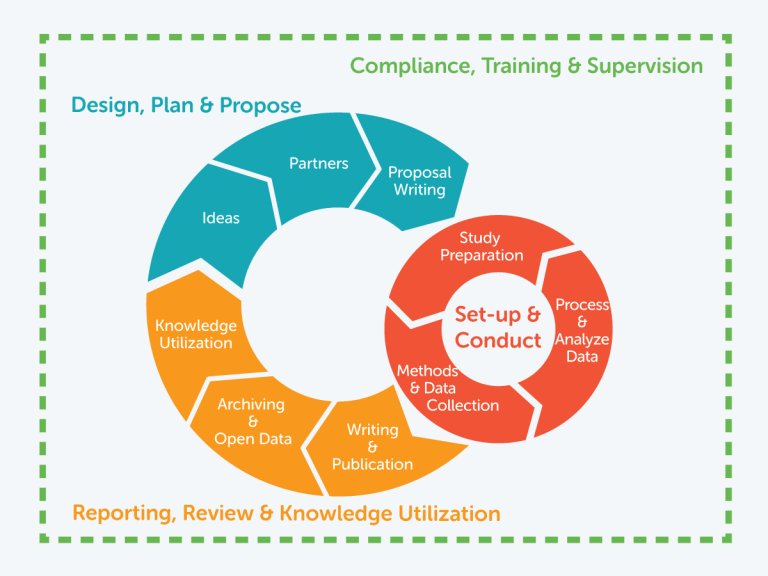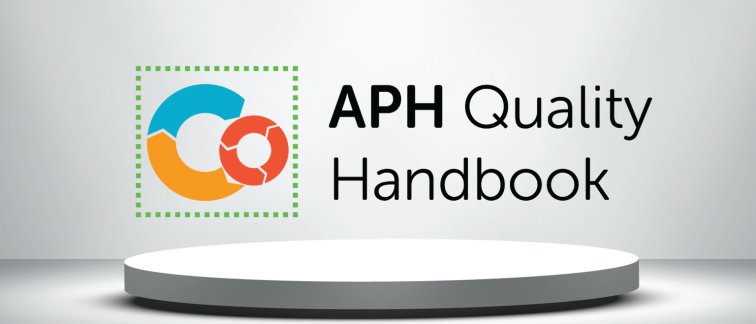Over the years the APH Quality Handbook has been a great source of information for researchers. This Handbook provides for APH's commitment to promote continuous improvement in research quality and to encourage good scientific conduct throughout all phases of research. The Handbook originated from the institute’s research community and was first made available online in 2003 under the auspices of APH's predecessors. This vibrant body of work and has been built up and updated over the past years as new values, principles, norms and practices in research became more relevant. Now, under the guidance of the Scientific Quality Committee and our project leader, Seta Jahfari, a broad team of APH-volunteers and together with a web-development bureau have completely revamped the content and structure of our handbook. We are proud therefore to launch our new APH Quality Handbook!
The APH research lifecycle
With the intention of setting a standard, structuring information and making information accessible for all researchers, the Research Lifecycle is used to navigate the researcher through the Handbook. The Research Lifecycle represents all activities typically involved in a research project, and may be scientific or administrative in nature, or both. They begin with forming a hypothesis and conclude with final reports, scientific publications and the further utilization of knowledge.

Three phases have been defined in the Lifecycle: (1) Design, Plan & Propose, (2) Set-up & Conduct and (3) Reporting, Review & Knowledge Utilization. Each of the phases have been divided in three sections. The overarching framework that provides normative context for all chapters is described in: Compliance, Training & Supervision.
Curious about the handbook? Visit the APH Quality Handbook online: aph-qualityhandbook.org. Questions & suggestions? Please send an email to the APH Scientifiic Quality committee.

